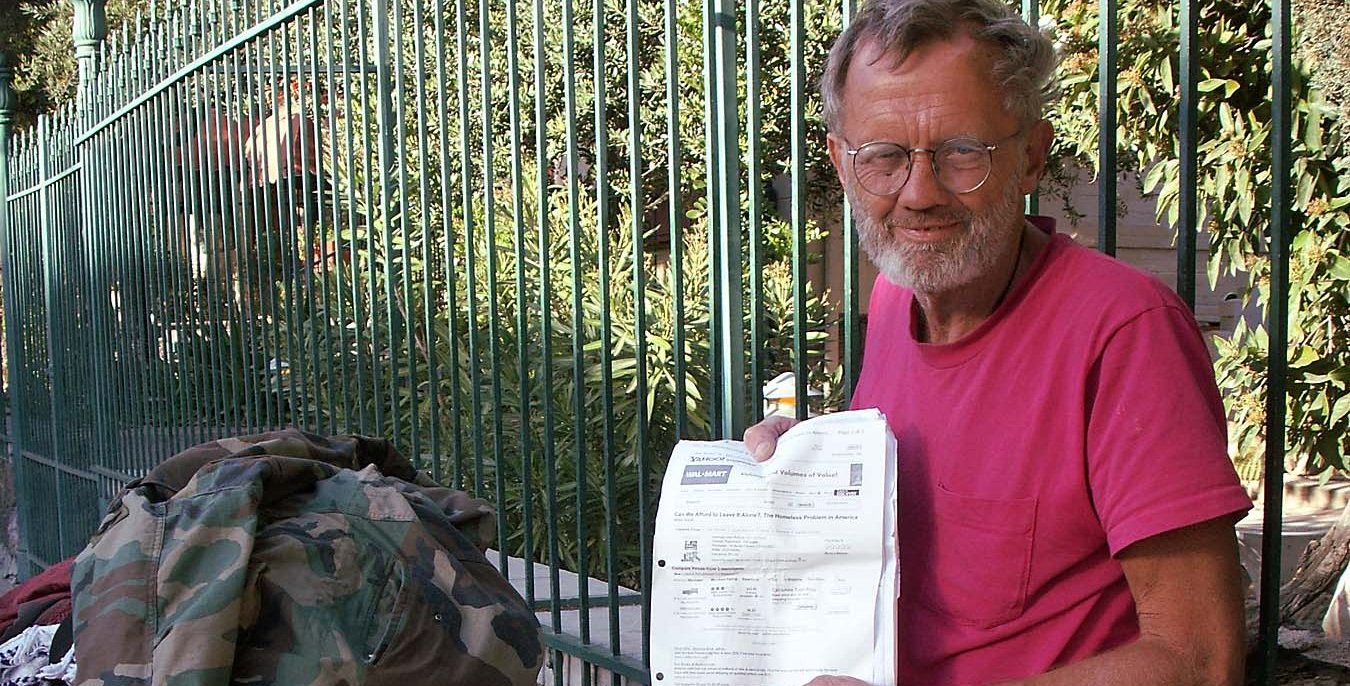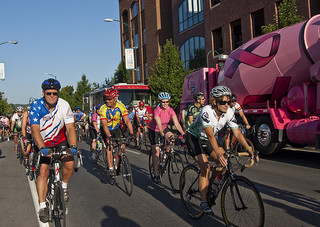
The trouble with poverty is that there’s no money in it. Unlike, say, NCAA basketball – a business worth almost a billion dollars a year. And though Warren Buffett’s cash was safe long before UConn cut down the nets on Monday, the world’s fourth richest man was willing to shell out a billion dollars of his own should any of us have come up with a perfect tournament bracket. Shabazz Napier, the transcendent point guard who led UConn to victory and helped make the school, its sponsors and the NCAA hundreds of millions of dollars, struggled during his time there to afford food. In the United States, one in six people and a quarter of all children go hungry, and almost 50 million Americans live in poverty. Globally, hunger kills more than three million children a year and over a billion people live on less than a dollar a day.
So here’s an immodest proposal: why not make poverty pay? Or, to put it more precisely, why not give eradicating poverty some clear market value? If Buffett is willing to reward a lucky guess with an astonishing fortune, how about a billion bucks for the person who alleviates the wretched conditions of the most unfortunate? Why is that not a bet worth making?
As it stands today, the fight against poverty is driven by charity and goodwill. Any kind of profit motive is considered unseemly. Helping the poor is a testament to how much you care, in which effort and good intentions are applauded no matter the result. It’s where scoundrels go for redemption and goodie two-shoes go for a spit-shine ethical polish. If we fail, no-one loses, other than the poor of course. It’s not as if anyone’s going to lose a billion dollars over it, or a shot at a billion dollars.
There’s no doubt that anti-poverty crusades are noble, Buffett’s own efforts included. But while we’ve made gains in reducing global poverty (largely due to China’s industrialization), this system on the whole doesn’t work very well. How could it? It’s based on the kindness of people’s hearts, and kindness doesn’t pay the bills or get me a shiny new iPad. That’s not a condemnation; it’s just a fact.
The profit motive is one of the most powerful forces known to human history. It drives capitalism, moves mountains, and conjures fierce competition, economies of scale, creative destruction, iconoclastic visionaries and innovative ideas. Some would say it’s the cause of poverty in the first place (including Buffett’s own son) but good luck extirpating it. Instead, why not try to harness it?
So how would this work? Well, pick a metric. Any metric. Malnutrition, household income, a solid roof over a child’s head – whatever suits your fancy, or a billionaire like Warren Buffett’s. That metric now equals revenue – this much poverty reduced equals this much money, like a bounty for the death of a rogue gunslinger or a unit price. Appoint an auditor to impartially determine whether gains have been made. Pool the money from as many billionaires and corporate behemoths (and governments) as necessary to create the payout fund. Announce, award, repeat.
Before this starts to seem implausible, consider the precedents. The Google Lunar X Prize will award $20 million to the first team to land a robotic spacecraft on the surface of the moon. We’ve spoken in this space before of the need for a moon-shot for justice, “a space race for social change.” Well, what’s more worthwhile? To put one small unmanned drone on the moon or take a giant leap forward out of poverty for all mankind?
Only that space race can unleash the energy and ambition we need to radically impact poverty. Whether it’s cheap, sustainable generators for the developing world, a farming system, or a jobs scheme, the prospect of riches would attract the best and brightest and encourage the most effective and efficient solutions so as to maximize profits. Entrepreneurs could take on venture capital in anticipation of reaping great rewards. “Social return on investment” would finally have real meaning rather than a fuzzy feel-good vagueness. Anti-misery magnates and transformative tycoons would take greater risks and try bigger ideas. Wheat would separate from chaff.
As one participant at the Ashoka Globalizer on Economic Inclusion said: “wouldn’t it be great if ‘billionaire’ was re-defined to mean someone who had improved 1 billion lives?” Yes, but wouldn’t it be even better – and a greater incentive for greater solutions – if that person could make a billion dollars from improving those billion lives? It seems odd that the rewards for helping to rid the world of the scourge of poverty should be dwarfed by the proceeds from creating the Shake Weight or the ShamWow!.
The Nobel Peace Prize cash award won by Muhammad Yunus was about a million dollars for a lifetime of battling poverty. Warren Buffett makes more than that in an hour. The Hult Prize gets closer: “the annual competition aims to identify and launch the most compelling social business ideas—start-up enterprises that tackle grave issues faced by billions of people. Winners receive USD 1 million in seed capital…” But that’s still chump change. And for the most part we get this: “By taking part in Activities, students can earn points on their way to become an Anti-Poverty Crusader. We will share the hard work of the winning school via our website, email database and social media. In addition, your school will receive a framed copy of one of the photos featured in the Make Poverty History photo exhibition.” Hardly a Lamborghini and a solid gold jet, or the cover of Forbes magazine.
Think of all the anti-poverty start-ups that might emerge if kids knew those points could be profits. Better yet, think what a person living in poverty might do if we weighted the rewards even more greatly for the poor to create those businesses and ideas themselves. There’s nothing to be lost with this model – the risk is entirely on the entrepreneurs and their backers; no results, no payout. Sticking with the current system is far more of a risk. The poor will continue to rely on the largesse of the rich and languish in the back of our minds as a guilty afterthought. Selfishness will run rampant and charity will continue to be seen as a speeding ticket or a piddling penance on the way to acquiring sybaritic fortunes.
Solving poverty is currently a hobby of the wealthy, let’s make it an industry for the innovator. Let’s make it everyone’s business, and whether or not it’s our problem, let’s make it our profit, until there’s nothing left to gain. Let Warren Buffett bet us all that we can’t eradicate poverty and have him pay out for our million and billion-dollar ideas. On reflection, the wealthiest might consider this quite a modest proposal. Because the only other solution for the poor masses gorging on the air promise-crammed and told for centuries to eat cake might just be to eat the rich.



